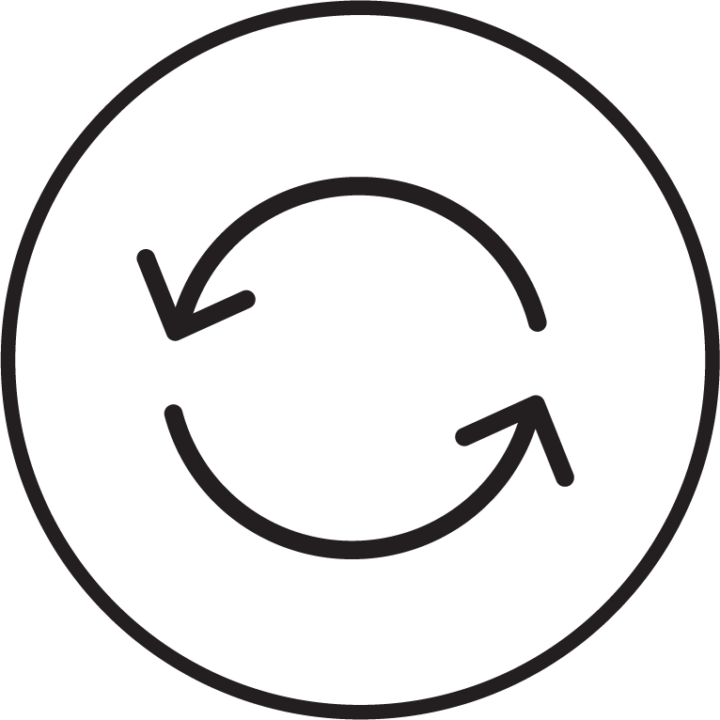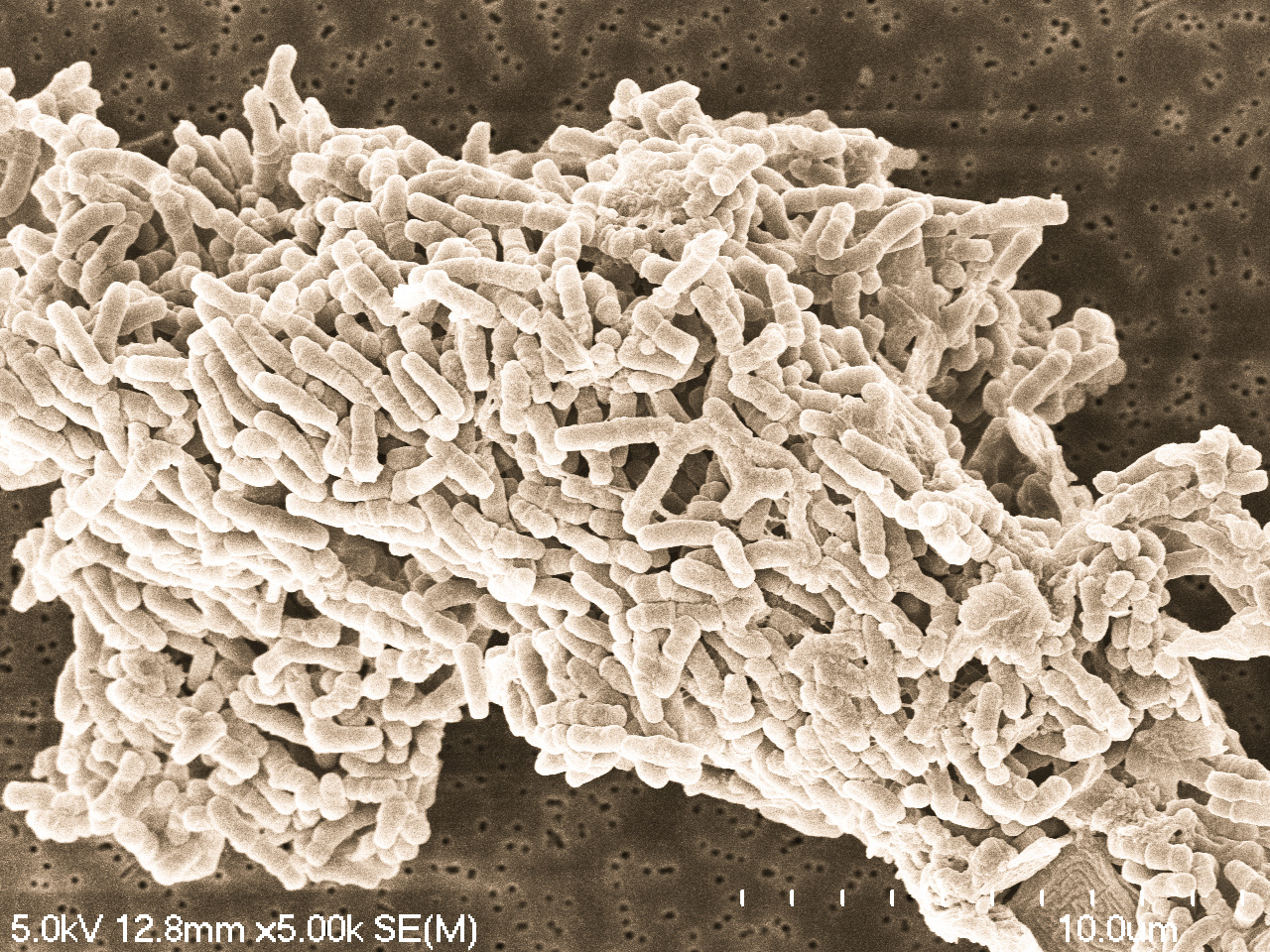Probiotic 101
probiotic
[pro·bi·ot·ic] noun
Live microorganisms that, when administered in adequate amounts, provide a health benefit to a host.
What matters when choosing a probiotic for baby
The bacteria strain
Definition: Strains are subtypes of the same species and are classified based on genetic and biochemical properties that give each strain unique attributes.
The probiotic strain B. infantis is a select subspecies uniquely adapted to capture and consume Human Milk Oligosaccharides (HMOs) from breast milk. However, not all strains of B. infantis can consume HMOs to the same extent.*
B. infantis strains can vary widely and not all B. infantis use human milk oligosaccharides probiotics equally. EVC001, the B. infantis strain only in Evivo, is clinically shown to maximize breast milk and fully digest the wide array of HMOs most efficiently and effectively. Did you know mothers have different HMO profiles and there are over 200 different HMOs?*
A mechanism of action
Definition: An explainable process that describes how a probiotic works inside the body.
The mechanism of action of the probiotic strain B. infantis EVC001 in supporting healthy immune function is directly connected to its unique ability to capture and consume breast milk HMOs, then convert them into metabolites.*
Colonization
Definition: Ongoing and high levels of detection, meaning the microbe must be actively replicating to establish an ongoing presence within the gut.
In recent clinical studies, B. infantis EVC001 given to breast milk fed full-term infants was shown to stably and persistently colonize the infant gut at high levels, resulting in sustained levels of good bacteria compared to breastfed control infants who lacked B. infantis. Within 3 days, babies fed Evivo increased good bacteria by 5X, and in a month had 70% more than before.*
Probiotics can vary widely. The benefits observed with one strain cannot be extrapolated to another.
How do probiotics work in infants?

Capture
B. infantis EVC001 uniquely captures Human Milk Oligosaccharides (HMOs) found in breast milk, helping infants maximize nutrition from breast milk.

Consume
B. infantis EVC001 then consumes HMOs to colonize, or to replicate, establish, and persist, in the gut to help reduce colic and digestive discomfort, protecting baby from the inside out.

Convert
Finally, B. infantis EVC001 converts HMOs into key molecules that help support a healthy gut environment and immune system.*
Probiotic terminology 101
| Probiotics | Animals (Example) | |
|---|---|---|
| Family | Bifidobacteriaceae | Candidae |
| Genus | Bifidobacterium | Canis (dogs, wolves, jackals) |
| Species | Bifidobacterium longum (B. longum) | C. lupus (dogs, wolves) |
| Subspecies | Bifidobacterium longum subsp. infantis (B. infantis) | C. lupus familiaris(domesticated dogs) |
| Strain | EVC001 (B. infantis EVC001) | Chihuahua |
FAQs
Most probiotics are bacterial strains that provide a health benefit to people. Probiotics should be named by their genus, species (subspecies when applicable), and a strain name. This information, especially the strain name, is crucial to conduct an evidence-based decision on a product.
Probiotics have been used in babies for many years and have been shown to be well tolerated. However, when choosing a probiotic, quality also matters. It is important to choose a probiotic that has been manufactured at the highest quality standards.
- Strain – Not all probiotics are the same—bacterial strain matters.
- Mechanism of action – the explainable process that describes how it works within the body.
- Ability to thrive (colonization) – ability to thrive and establish an ongoing presence within the gut.
For babies receiving any amount of breast milk, probiotic strain B. infantis EVC001 is a strain that has been clinically shown to work with the HMOs found in breast milk.
If you are no longer breastfeeding, many formulas now include HMOs (human milk oligosaccharides) or you can purchase HMO powder and add it to your formula with Evivo.
Evivo® is a daily infant probiotic that contains B. infantis EVC001, a strain baby needs. Clinically shown to work with the HMOs found in breast milk, Evivo helps establish a healthy gut microbiome to support healthy digestive and immune function.
Parents of babies who take Evivo report their babies have:
- Less gas and fussiness
- Improved sleep
- Improved stooling
- Relief from diaper rash.
The good bacteria B. infantis thrives off of HMOs (human milk oligosaccharides). If you are no longer breastfeeding, many formulas now include HMOs. Look at the ingredient list of your formula for: HMOs, 2’FL, 6’SL, 6′-GOS, 3’SL, LNT or LNnT. Or you can also purchase HMO powder and add it to your formula.
Evivo is clinically shown to be safe for babies and is Non-GMO Project Verified and Nutrasource IPRO™ (International Probiotic Standards) certified.
Many probiotics claim, but Evivo actually explains how it works within baby.
B. infantis EVC001, only in Evivo:
- Attaches to important nutrients in breast milk called human milk oligosaccharides (HMOs), to help healthy development
- Consumes these nutrients to thrive and protect within for digestive comfort
- Transforms nutrients to benefit healthy immune function


